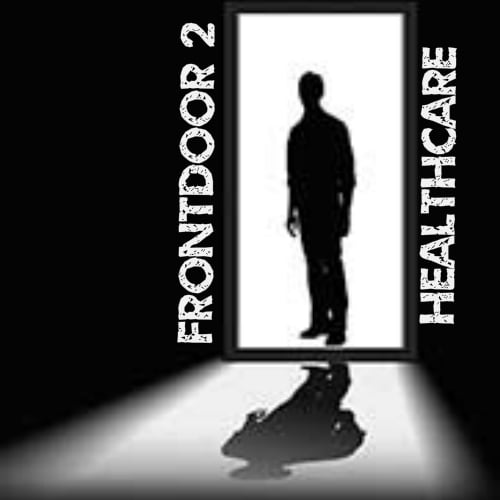Recently I came across an interesting news piece that reported on a published research article documenting an unusually high rate of injuries requiring prehospital and emergency room utilization as a result of particularly risky behaviors, specifically at a Tough Mudder competition. You can find the actual article published in the Annals of Emergency Medicine here. For those of you who are unfamiliar, the Tough Mudder race (similar to others like the Spartan Race, etc.) is an extreme obstacle course competition open to pretty much anyone who wants to participate. But unlike other physically demanding activities like marathons and triathalons, participants often fail to train properly prior to the event – in fact many join viewing it as the occasional fun weekend activity with a team of friends (yes, some call running through 10,000V of electrical wires and jumping down 15+ feet fun).
The results of the study made me wonder about the effect these events (which some would argue are voluntarily “high risk” activities) have on our public healthcare system, especially in light of our current wait times situation; each acute orthopedic injury requiring surgery, for example, would potentially bump/delay someone else who’s been suffering in pain and off work for months on a waiting list for an elective hip or knee replacement. Does that seem entirely fair and reasonable? I posed this question on Facebook – and unsurprisingly, opinions are quite split and polarized.
On one side sits the sentiment that individuals who voluntarily participate in higher risk activities should understand that they may potentially utilize our common healthcare resources to a greater degree than others, and thus should be subject to some method of greater personal accountability. Here are some comments I received:
“…if you’re going to knowingly engage in risky behavior, you should be expected to pay for the healthcare resources you consume and not take from the shared pool of Canada’s universal healthcare. …”
“…In my opinion, the answer is yes. If govts are required to be fiscally accountable to taxpayers, then taxpayers have to be fiscally accountable for their choices. Not easy to implement i agree but we have to start somewhere.
When someone is required to sign a waiver form, they should ask themselves: can i afford to get hurt? Too many benefit from short and long term disability ins that also prevents people from being guided to make the right decisions for themselves.
I think its time govts turns the table around and make some taxpayers more accountable through some sort of user fees… Accountability is a two way street!…”
“…All that being said, in an event where you are exposed to a potential large electrical shock you would think that the organizer would have to have some accountability – insurance, large tax fee, etc…”
The trick is of course, how does one concretely define “risky”? In the study, they indeed found the volume and severity of injuries from the Tough Mudder event to be “unusually high”…but what should be the cut-off?
“…My quick thought is that a high risk lifestyle is awfully hard to clearly define – addict, glutton, sloth, marathoner, high stress job with famillial hypertension…. where do you draw the line??…”
On the flip side, others argue that it would be unfair to “punish” these individuals who are actually taking time out to be physically active; perhaps we should shift the focus onto other “risky behaviors” that are also linked to higher rates of healthcare utilization:
“…Ya lets promote obesity because that doesn’t take up any unnecessary health care resources. Then there’s the small problem of defining “risky behavior”… Any type of exercise can be considered “risky” and penalizing people for trying to improve their health doesn’t make sense to me…”
“…Only if those who abuse their bodies in the opposite way are also accountable?…”
“…You could make the same argument for motorcycles, sports cars, skiing, eating a bad diet, smoking, elective plastic surgery (the complications of), bicycling, etc. Part of the rationale for a “universal” health care system is the diversification of the risk pool. We all take risks in our life to some degree. In the end it generally evens out. There are very few outliers and we all will use most of our health care costs in our last few years of life…”
“…Not until we charge smokers… Drinkers,… Etc a higher rate!…”
Of course, this idea is not new. We tax tobacco and alcohol already, don’t we? In fact, some countries have already started to implement “fat taxes” – check out Mexico’s recent tax on high-sugared drinks. More and more research is starting to suggest that making individuals more accountable through such taxations may have huge health benefits. See this study last year estimating that slapping a “penny-per-ounce tax on sweetened beverages would prevent nearly 100,000 cases of heart disease, 8,000 strokes, and 26,000 deaths over the next decade”.
The critical issue is, how to balance an individual’s right to make autonomous decisions about their lifestyle, versus the cost to a public healthcare system funded by universal taxation?
“…You are walking a fine line when you want to play big brother and tell people what to do with their life by threatening their health care coverage…”
Whichever side you fall on, some facts remain: demand for healthcare is continually rising, while there is a limited funding pot. As discussed in a previous post, the Canadian healthcare system was never intended to be able to cover unlimited healthcare usage by everyone; moderation and self accountability was always a fundamental pillar of a sustainable system.
The question is where do we draw the line? The arguments may be polarized, but better to engage the issue now before it’s too late. And from my brief Facebook posting experiment, it seems the appetite for discussion is there.

